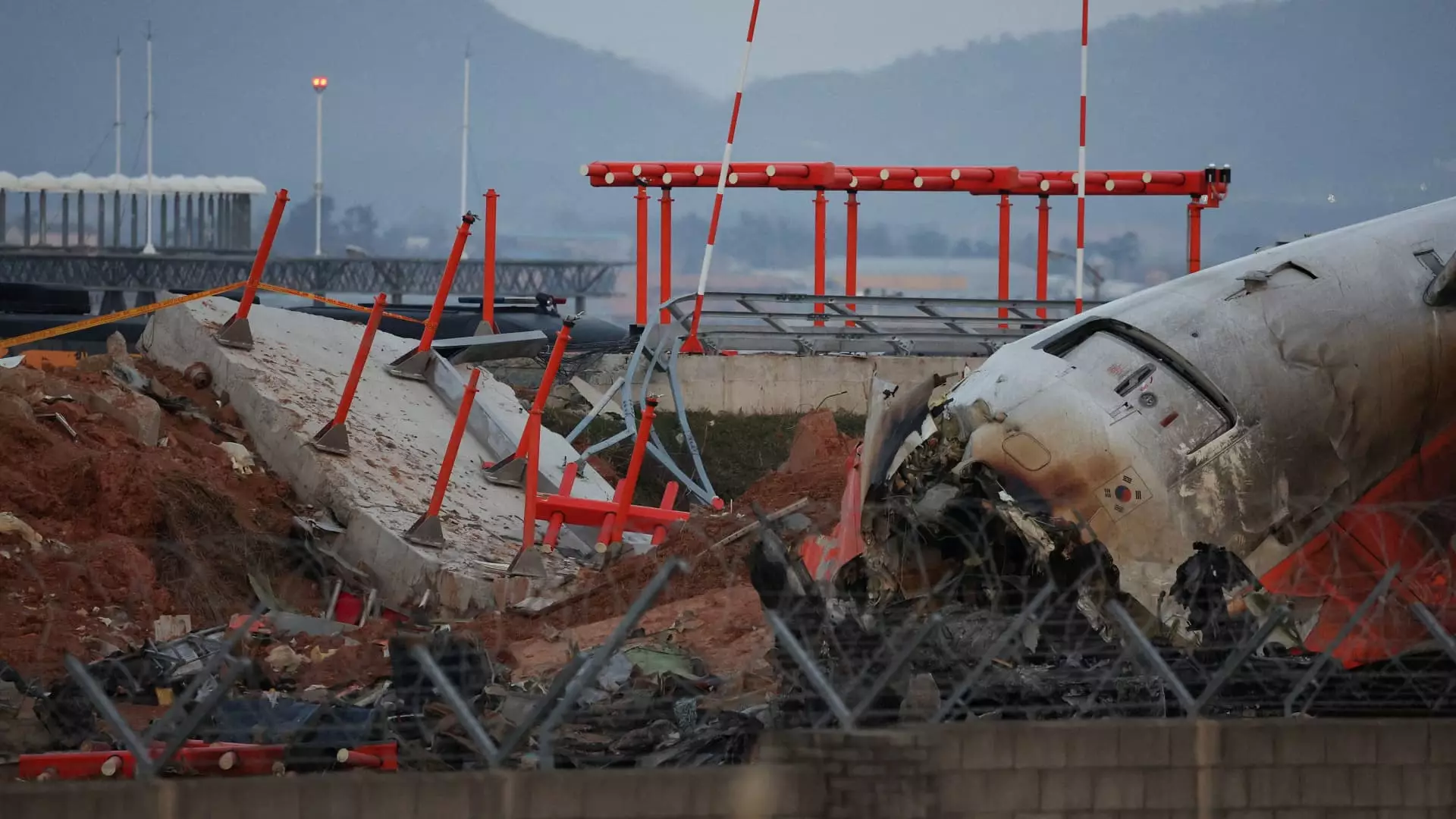In a major aviation incident that shook South Korea, the investigation into the Jeju Air crash has revealed alarming details surrounding the aircraft’s black boxes. Notably, the flight data and cockpit voice recorders ceased functionality a mere four minutes prior to the tragic accident, which claimed the lives of 179 passengers. This unsettling discovery raises significant questions about the events leading up to the crash, particularly as investigators strive to piece together the timeline of the ill-fated flight.
It was reported that the flight, on its route from Bangkok to Muan, experienced a bird strike shortly before the incident. The fact that critical recording data is missing leaves investigators with a daunting challenge. With essential minutes lost, the complexities of reconstructing a concise narrative of the events become even more intricate. According to the Transport Ministry, as part of the ongoing investigation, experts are focusing on understanding why the recorders stopped working and whether this was due to a catastrophic failure of the aircraft’s systems.
The Technical Aspects of the Investigation
The black boxes are invaluable tools for aviation safety, collecting substantial data on cockpit communications and aircraft systems during flights. Their failure in this case, particularly in a situation involving such a tragic outcome, necessitates an in-depth inquiry into the mechanics of the Boeing 737-800 jet. Such gaps in data are rare and suggest possible severe malfunctions that might have led to a loss of power—both primary and backup.
Initial analyses performed in South Korea were inconclusive, prompting the Transport Ministry to transfer the voice recordings to the National Transportation Safety Board (NTSB) in the U.S. This decision reflects the gravity of the situation, as investigators seek to tap into international expertise in reconstructing the final moments of flight 7C2216.
Family Concerns and Transparency in the Investigation
As the investigation unfolds, it has drawn the attention and concern of the victims’ families, many of whom have expressed distrust in the proceedings controlled solely by the Transport Ministry. Families are calling for independent experts to be involved, ensuring the investigation is impartial and thoroughly transparent. Their plea underscores a widespread fear that the findings may be compromised or influenced by factors beyond public scrutiny.
Furthermore, the investigation has broadened its focus to examine the embankment the plane collided with during its crash landing. This embankment was implemented as part of a “localizer” system for assisting landings. The decision to construct it with rigid materials and its proximity to the runway has spurred new debates about airport safety protocols and infrastructure design.
The Jeju Air crash serves as a stark reminder of the critical importance of aviation safety measures and the robust oversight necessary to ensure that such tragedies are prevented in the future. The devastating impact on the victims’ families cannot be overstated, as they seek answers and accountability in the wake of their loss. Ultimately, this tragic incident emphasizes the need for comprehensive reforms in both investigation efficacy and aviation safety standards, driven by a commitment to transparency and a dedication to preventing future disasters.


Leave a Reply